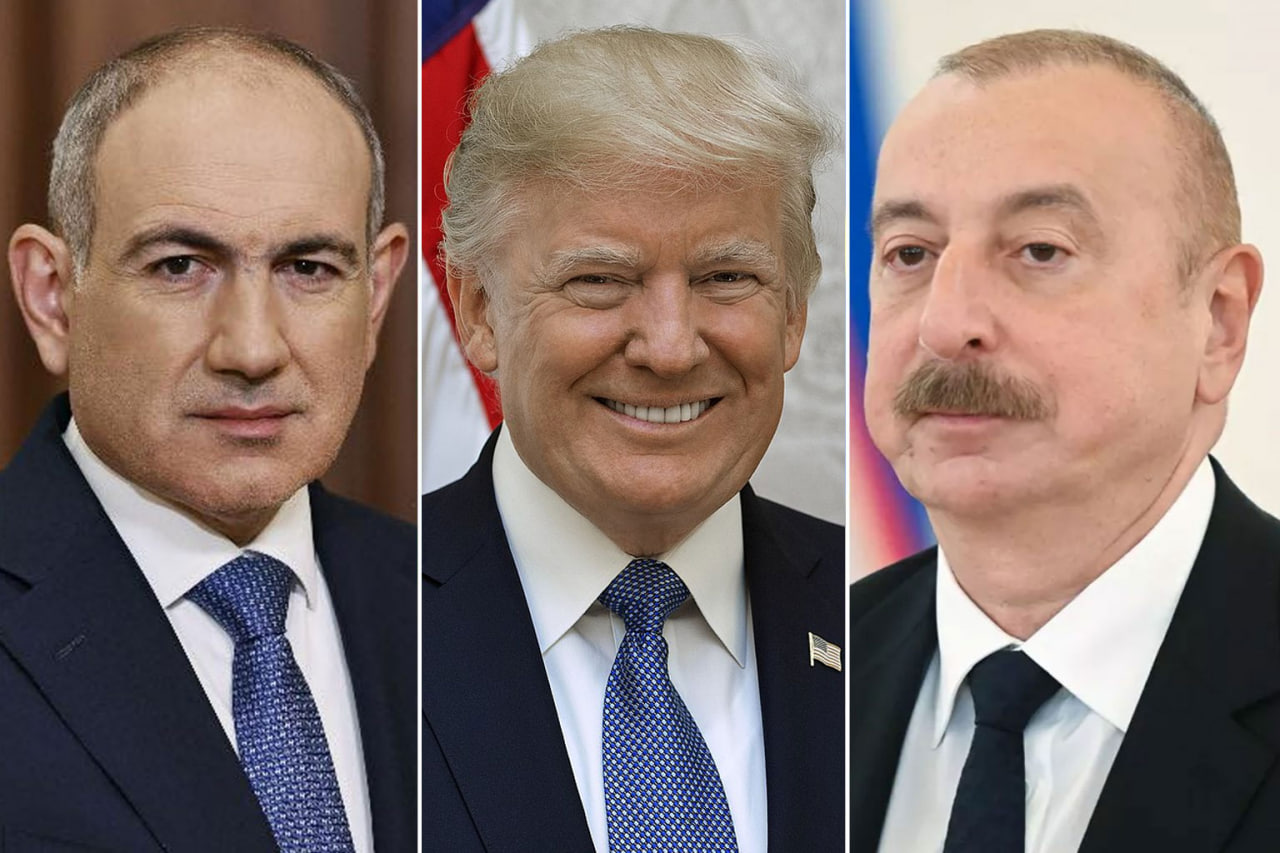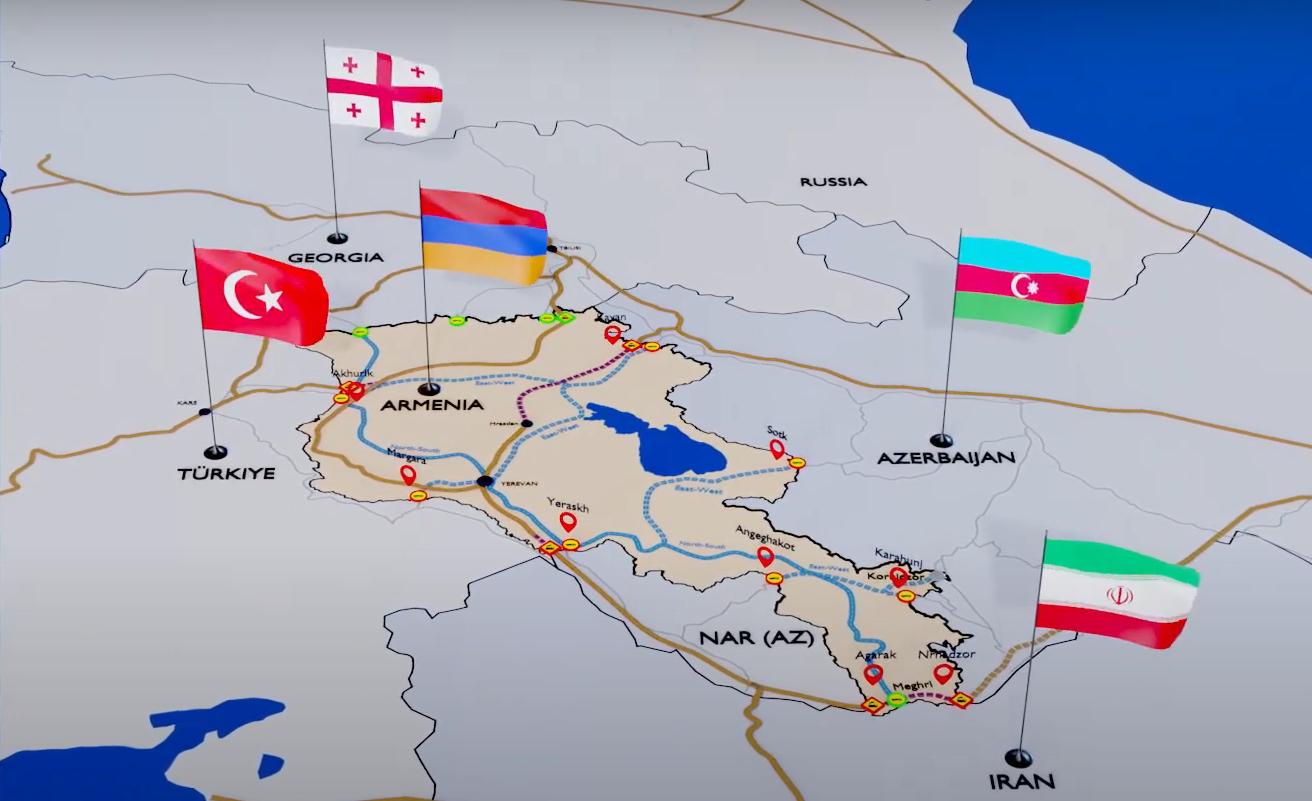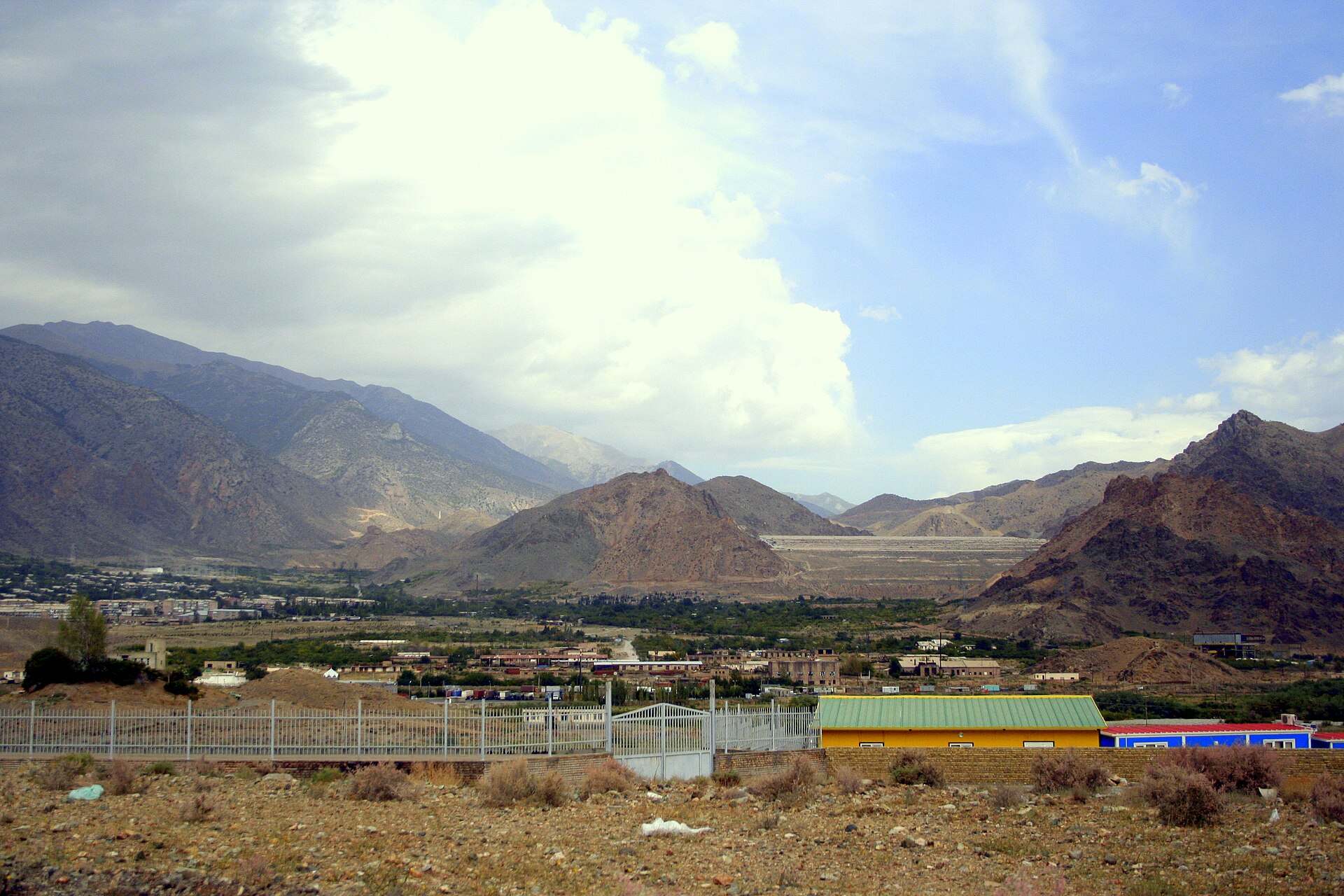“Armenia breaks out of isolation”: the significance of the Trump–Pashinyan–Aliyev talks
What the Washington meeting could mean for Armenia
High-level talks between Donald Trump, Armenian prime minister Nikol Pashinyan and Azerbaijani president Ilham Aliyev are expected to take place today in Washington. According to reports circulating in the media and on social platforms, the US president will first hold separate bilateral meetings with Pashinyan and Aliyev, followed by a trilateral session.
The signing of both bilateral and trilateral documents is reportedly on the table. Some experts suggest the parties may even move to initial a peace agreement — a step short of full ratification.
White House-accredited journalist Alex Raufoglu reported that, in Trump’s presence, Pashinyan and Aliyev are expected to sign:
- a joint declaration outlining a “concrete path to peace” and full normalisation of relations;
- a joint letter announcing their withdrawal from the OSCE Minsk Group, which had long overseen negotiations on the Karabakh conflict;
- a memorandum of understanding with the United States.
According to Raufoglu, the peace agreement is expected to be initialled by the foreign ministers of Armenia and Azerbaijan.
Political analyst Hovsep Khurshudyan reviewed the available information and outlined what he sees as the potential positive and negative implications for Armenia.
He also commented on a reported US proposal to ease regional transport blockages — by placing a key road through southern Armenia, linking Azerbaijan with Nakhchivan, under American management.
“Armenia is breaking out of isolation and becoming involved in major regional infrastructure projects,” Khurshudyan said.
Baku has for years pushed for what it calls the “Zangezur corridor” — an unrestricted land route across Armenian territory to connect Azerbaijan with its exclave of Nakhchivan. Yerevan has resisted the term “corridor,” which it sees as implying a loss of sovereignty. Instead, Armenia has offered access in line with a proposal known as the “Crossroads of Peace.” The plan envisions reopening multiple transport routes under four guiding principles: territorial integrity, sovereignty, jurisdiction and reciprocity.
Recent reports in foreign media suggest the idea of a “corridor” may have been dropped from the agenda altogether. Raufoglu wrote: “The corridor is off the table. The main topic of the White House summit will be a new transit and development plan titled the ‘Trump Route for International Peace and Prosperity’ — TRIPP.”
- Armenia wants to join EU but won’t damage ties with Russia: Pashinyan’s press conference
- “Armenia could lose control over unblocked transport routes”: Opinion from Yerevan
- “Baku weighing U.S. proposal”: Pashinyan-Aliyev talks in Abu Dhabi
Comment
Political analyst Hovsep Khurshudyan wrote on Facebook:
“The pros and cons of the agreements reportedly being signed in Washington — based on what we know from leaks.”
Positive aspects / achievements:
- Armenia retains sovereignty over the roads it provides.
Not only that — it stands to benefit financially from their use, without having to invest in their construction or maintenance.
This implements the East–West axis of the “Crossroads of Peace” project, without interfering with the North–South route or future plans to build roads connecting Iran, Georgia and the Black Sea, as well as potential gas and oil pipelines and electricity lines.
In this way, Armenia breaks out of isolation and becomes part of major regional infrastructure projects.
- The US enters the region with its economic interests,
which largely align with Armenia’s — as they are based on peace and stability needed for the expansion of energy and logistics businesses.
Together with the EU monitoring mission — which, after the peace agreement is signed and ratified, will not be withdrawn from Armenia (only pulled back from the immediate border) — this significantly boosts Armenia’s security and virtually eliminates the risk of Azerbaijan using force to seize an “extraterritorial corridor” or occupying the entire southern Syunik region.
- Russia’s presence in the region is noticeably decreasing.
And after the signing of the peace treaty and the establishment of Armenian–Turkish diplomatic relations, after the unblocking of roads and the reduction of Armenian–Turkish tensions, the possibility arises for the withdrawal of the Russian military base from Armenia — a base that did not fulfil its treaty obligations to Armenia during the Azerbaijani incursions of 2021–2022.
This, in turn, opens the door to military cooperation between Armenia and NATO (up to membership) and/or with the US — up to obtaining the status of a major non-NATO ally. That is, the opportunity arises to ensure long-term security and peaceful economic and human development.
- Armenia opens only a commercial/trade passage for Azerbaijan to Nakhichevan.
This means that transporting military cargo and equipment would require Armenia’s special permission, which significantly increases its geopolitical weight. Cargo from all other countries will pass along the Trump Route according to standard procedures. - Armenia becomes part of new oil and gas megaprojects
comparable to Baku–Tbilisi–Ceyhan and TANAP, transporting Kazakh oil and Turkmen gas to Europe.
This means Armenia can finally free itself from oil and gas dependence on Russia, by purchasing Kazakh oil and Turkmen gas passing through its territory. In the case of Kazakh oil, the construction of an oil refinery in Meghri may become a reality, which would not only make Armenia self-sufficient in gasoline and other petroleum products, but could also create a new cluster of economic development.
It is also important that in these oil and gas projects, the partner of the Azerbaijani state company SOCAR becomes American company Exxon Mobil, which would give Armenia the opportunity to purchase Kazakh oil and Turkmen gas from pipelines operated by Exxon Mobil at reasonable/market prices. In any case, relations with Kazakhstan and Turkmenistan must be intensified.
By the way, one of Exxon Mobil’s key top managers (independent director of the board) is an Armenian — Steven Kandarian. I don’t know how useful this might be for us. Among Exxon Mobil’s institutional shareholders are: Vanguard Group (9.8%), BlackRock Inc. (6.9%) and State Street Corp. (5.3%). Another 40% is held by small investors. Before the official announcement of the deal, Exxon Mobil’s (XOM) stock price is $105.95.
In my opinion, on Monday — with the opening of international stock exchanges — the company will show a sharp increase. So those trading in securities and investors may want to pay attention to this opportunity.
- Unlike the previously planned option (to jointly appeal to the OSCE to dissolve the Minsk Group), Armenia and Azerbaijan now declare that they are withdrawing from this format.
This, in itself, does not necessarily lead to the dissolution of the Minsk Group, since it was not created to resolve Armenian–Azerbaijani relations, but to address the status of Artsakh [the former Nagorno-Karabakh Republic].
The destruction of the self-proclaimed Republic of Artsakh by force, and the genocide/expulsion of the Karabakh Armenians, cannot be considered a “solution to the problem” under any international norms.
- If the obstruction of Armenian cargo on roads passing through Georgia was linked to the desire of the Georgian authorities to pressure Armenia for participating in the creation of new megaproject routes competing with Georgia, then after the signing of the agreements, these obstacles/this pressure will stop.
And if they continue, then our claims — based on the views of certain Georgian experts — that the Kremlin is behind these obstacles will be more justified. That is, the Kremlin, unable to directly close Lars [the main border checkpoint] to Armenian goods (to avoid giving Armenia a legitimate reason to exit the EAEU [the economic union led by Russia]), creates pressure through the hands of the Georgian authorities.
Negative/risky points
- It is unclear to what extent the principle of reciprocity in the unblocking of roads will be ensured.
- It is unclear what sanctions are envisioned for the party that violates the agreements on unblocking (if such mechanisms exist).
- The absence of the European Union in the deal may raise concerns among our European partners, since the US may use its increased influence over the Middle Corridor to control or manage China–Europe cargo flows — and, if necessary, to block them.
- The fact that Armenian railways — despite repeated violations of the concession agreement — are still managed by Russia’s South Caucasus Railway (SCR) significantly limits Armenia’s ability to attract American economic interests to the central and northern parts of the country.
Meanwhile, this could have encouraged Washington to put pressure on Turkey to halt the construction of the costly Kars–Iğdır–Nakhchivan railway — a project aimed at isolating Armenia.





















